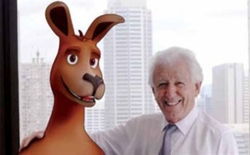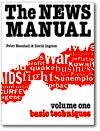DogBitesMan » Humour, Media, Society » Australia failed to score – so what?
Australia failed to score – so what?
 Losing the bid to host the 2022 World Cup may seem like the end of the world to Australian soccer fans, but as the teeth grinding and recriminations slowly fade, the rest of the nation issues a collective sigh of relief.
Losing the bid to host the 2022 World Cup may seem like the end of the world to Australian soccer fans, but as the teeth grinding and recriminations slowly fade, the rest of the nation issues a collective sigh of relief.
Those uninterested in football – Australia still doesn’t know what to call “the world game” – will be relieved on several fronts.
Of course many will tut-tut at the unfairness of the process and the insult to national pride. Many more will have sympathy for the hurt felt by true fans and those who worked on the Australian bid. But in the end millions of Australians will go into a quiet, private space and utter their own verdict, whether that relieved sigh or a whooping holler, an exultant “Yes!” as they punch the air.
Football does that to people. It not only fractures fans along the tribal lines of club or country but it has long divided Australia into three camps: those who love the round ball game, those who loathe it with varying degrees of passion and those – one might suspect the majority – who have no strong feelings either way.
To millions of Australians the question itself is at best a distraction from more important things in their lives. For the more puritanically minded it is a mystery why grown men – and despite the Matildas, it is almost always men – want to devote their lives to kicking a leather bag around a field while hundreds of thousands more want to watch them do it, at the ground or on TV.
The more philosophically inclined will cloak their opposition, as they do to many forms of commercial sport, by muttering “panem et circenses”, hissing at various governments forking out taxpayers hard-earned dollars for the circus while the workers themselves have to look for their own broad.
Of course, unlike in Juvenal’s time, the citizens of modern Australia don’t generally scramble for free handouts of bread, though they will queue outside fashionable bakeries to spend a small fortune on baguettes and bagels. Today it’s plasma screens or foreign holidays, bus passes or lottery tickets they feel they need.
And while many may be happy to watch sport on those plasma screens on a rainy weekend, they will get over any temporary disappointment that another excuse for a national party has slipped through their fingers again. They will console themselves with the thought that (a) Australia has already demonstrated it can hold “the best Olympics ever” and (b) at least the Poms didn’t get it. And where or what is Qatar anyway, apart from a country which, like Qantas, spells its name without the obligatory “u”?
Hardcore soccer fans aside, the rest of the population will console themselves with more important considerations, the principal of which is the expense.
Although exact cost-benefit analysis can never quantify the final score of hosting what some call the world’s most-watched sporting event, history has shown two things – these so-called “mega-events” always cost more than planned and no country ever actually makes a profit out of hosting them. Indeed, most end up losing millions if not billions. South Africa, hosts to the 2010 World Cup, now finds itself with several large, expensive stadiums it will never again fill and which be a burden on generations to come until they are finally pulled down.
The Sydney Morning Herald quoted a leaked FIFA report by the consultancy McKinsey & Co that Australia had the worst commercial case of the nine bidders and would meet just 68 per cent of FIFA’s revenue target. Of more concern to Australians, the Herald that day suggested federal and state governments would have to raise $2.8 billion – yes, billion – to build and upgrade stadiums. As if, after the Sydney Olympics in 2000 and the Melbourne Commonwealth Games in 2006 Australia needed any more giant outdoor sporting venues. And that’s not counting likely compensation to the rugby codes for disrupting their season, other infrastructure and service costs and perhaps the biggest cost of all – the opportunity cost.
The mining industry may be temporarily booming, but at a time when our major capitals are crumbling, our regions are being drained and nurses in NSW feel they need to strike to focus our attention on the terrible condition of the state’s health services, many rational Australians think that $2.8 billion can be better spent.
And then there are less tangible risks.
Through a combination of hard work, innovation and good luck, Australia’s reputation survived relatively unscathed from hosting the Olympics and the Commonwealth Games. Neither brought the great financial bonanza promised from tourism or overseas trade, but at least we didn’t stuff up like Atlanta or Delhi.
For a country that is still unlikely to be soccer mad by 2022 and that could by then actually be more remote from the rest of the world with rising fuel prices and environmental disincentives to travel, there’s far less guarantee of success than for the 2000 Olympics, which were staged in a pre-9/11 world.
And even the most optimistic of Australian soccer tragics don’t believe by 2022 Australia will have a team able to advance beyond the opening rounds, even playing all their games at home.
But beyond all the media breast-beating and the arguments on cost or risk, what’s helping most Australians recover so quickly from the disappointment of being told they’re not good enough to host the world game is good old Aussie self-reliance.
So what if the grandees at FIFA in Zurich don’t want Australia on their team – well, not as much as Russia or Qatar?
We never liked their silly round-ball game anyway. And all that razzmatazz and hoopla, all that backslapping and rah-rah team chanting thing? As Graucho Marx so famously said (surely an Australian) “I don’t care to belong to any club that will have me as a member”.
And let’s not even get started on the appalling bid video!
Filed under: Humour, Media, Society · Tags: Australia, commercial sport, Commonwealth Games, FIFA, football, Graucho Marx, Qatar, soccer, South Africa 2010, Sydney Olympics, World Cup, Zurich













